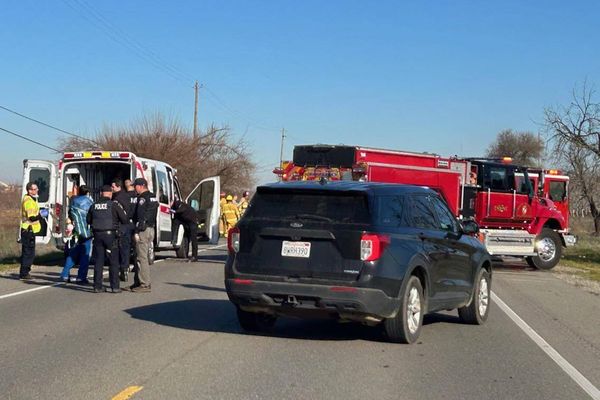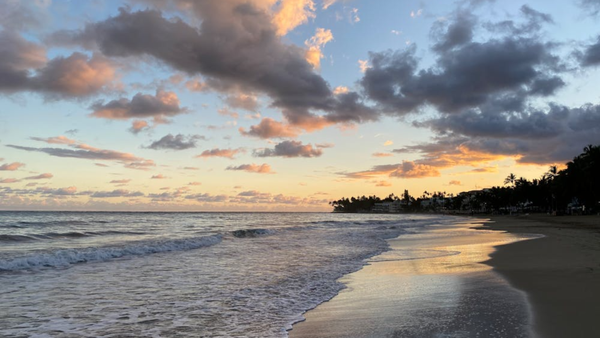An amber warning has been issued for London this week, as the capital experiences its fourth heatwave of the summer.
The health warning is in place in London from 9am on Tuesday to 6pm on Wednesday, along with parts of the Midlands and the South East.
It’s expected to get as hot as 34C in parts of west London on Tuesday, raising health risks for vulnerable people.
During very hot weather, babies and young children are particularly vulnerable to health risks including dehydration, heat exhaustion, heatstroke and sunburn.
Here’s a guide to keeping your baby safe during the hot weather:
Sun protection
Infant skin is more sensitive to the sun, so taking measures to avoid direct sunlight is essential. However, sun safety measures differ depending on the age of your child.
According to the NHS website, if your baby is under six months old, they should be kept out of direct sunlight at all times.
Symptoms of suntroke in babies
- Hot, flushed and dry skin
- Intense thirst
- Dark urine
- Irritability
- Body temperature over 40°C
- Vomiting
- Confusion
- Rapid breathing
- Unresponsiveness or shock
If they are older than six months, it’s still best to avoid activities in direct sunlight where possible, particularly between 11am and 3pm, when the sun is strongest.
Attaching a parasol or sunshade to your baby’s pram can help reduce sunlight, but parents are advised to avoid putting a blanket over it, as this can cause overheating.
Wearing a sunhat with a wide brim or long flap at the back can also be helpful to create shade and protect their head, ears and neck from sunlight.
“We should take on the mantra for Australian school children, 'no hat, no play' which is vigorously enforced,” Dr Sasha Dhoat, consultant dermatologist at The Harley Street Dermatology Clinic, told The Standard.
She adds that parents should note that SPF is not recommended for infants under 6 months, “as babies have a higher surface-area to body-weight ratio compared with older children and adults, which means that a baby’s exposure to the chemicals in sunscreens is greater, possibly increasing the risk of an unwanted reaction”.
“If there is no way to keep a young infant out of the sun, applying high SPF sunscreen to small areas, such as the cheeks and back of the hands is acceptable.
Remember that NO sunscreen can provide 100 per cent protection from the sun,” she says.
She advises parents to always opt for factor 45 and above (to protect against UVB) and four starplus rating (to protect against UVA), reapplying regularly, “regardless of what the packaging says.”
UVB rays mainly affect the outer layer of the skin, known as the epidermis. They are responsible for sunburns and some skin cancers. UVA rays penetrate into the dermis - the lower level of the skin.

“Apply sunscreen at home, before a day out. You have zero chance of cajoling children to remain still once they see the pool, or sandpit!” Dr Dhoat says.
A good way to do this can be to “make it fun,” whether that’s through coloured sun cream or drawing pictures on the skin before rubbing it in.
“Distract with a favourite YouTube short, cover the bottle with their favourite cartoon character stickers, get creative,” she says.
Be aware of dehydration
Dehydration-prevention measures also differ depending on the age of your baby.
“There's a misconception that breastfed babies require additional water during hot weather,” Dr Naveed Asdif, GP at The London General Practice, told The Standard.
“In reality, they can breastfeed more frequently to stay hydrated, while formula-fed babies can have small amounts of cooled boiled water.”
He says that if a baby is over six months, “water-rich foods like cucumber and watermelon” can be introduced to their diet.
After 12 months, frozen lollies made from water or diluted fruit juice can help keep your child hydrated.
Reducing temperature
Babies get hot quickly because they have more body surface area than body mass. Parents must exercise caution to ensure they don’t get too hot.
First and foremost, babies should not be left in small, enclosed spaces, such as parked cars.
You can also take steps to cool down their bedroom, such as closing blinds or curtains during the day and opening the door. A nursery thermometer can measure the temperature of the room (between 16C to 20C is optimum).
“If using a fan for air circulation, direct it away from the baby to prevent dehydration,” Dr Naveed Asdif, GP at The London General Practice, told The Standard.
“Turn off electronic devices that generate heat, and if you're using air conditioning, maintain a slightly cooler temperature rather than overly cold, as it can reduce humidity and lead to dehydration.”
He adds: “Consider using a humidifier or placing a damp towel in the room to maintain moisture levels”
Other ways to cool down your baby include playing in a paddling pool in the shade and running a cool bath before bed. It’s advised to keep their clothing to a minimum when going to sleep, such as wearing only a nappy.







